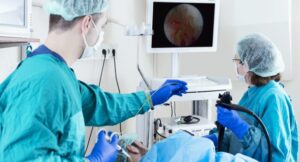
This article opens you to the down to earth techniques (or perhaps proprietary innovations) that are regularly utilized by specialists. For a clinical understudy, this subject covers the essential strategies in a genuine circumstance where a clinical specialist ought to move toward a patient. This is the ‘ability’ establishment (rather than simply the know what) subject for to-be clinical specialists.
An average bit by bit approach of a specialist patient association would continue like this:
Stage 1: “What might I do for you”: A specialist is attempting to lay out what your clinical issue is.
Stage 2: You would likely let the specialist know your concern e.g hacking for the beyond multi week. This for the specialist is your ‘side effect’.
Stage 3: Your primary care physician will ask you further inquiries to limit and determine what the fundamental issue is. A hack can be because of many reasons. It tends to be because of a bacterial disease (should be treated by anti-infection) or may simply be because of the ‘normal influenza’. Correspondence with the specialist is significant here as it is just advantageous for you that the specialist recognize the exact justification for your clinical issue.
Stage 4: Your primary care physician will inspect you (with thermometer, stethoscope and so on) to get additional data. This for the specialist is your ‘signs’. For instance, you might have fever and the specialist finds that your right lung doesn’t seem natural.
Stage 5: Investigation: Your PCP might demand that you take a chest X beam or may try and take an example from your throat to test for H1N1 infection.
Stage 6: Treatment: Your primary care physician ought to impart to you his expert assessment of his discoveries and prescribe you to take some medicine.
Stage 7: Further activity: Your primary care physician will prompt you on vital activity on the off chance that your condition doesn’t improve for example to return again in 3 days time or to go to the closest medical clinic on the off chance that its a crisis.
This is obviously a worked on technique for an ordinary patient-specialist connection in a center. Nonetheless, in a health related crisis; there will be obviously not so much talking but rather more forceful mediations.
The web has given an incredible open door to data and information to be made accessible to the general population. Notwithstanding, you might have to separate locales that are more sound than others. My perspective is that the public authority destinations (locales with the “.gov” expansion) are generally more dependable than those with “.com” augmentation.
A fascinating book with the title: ‘Specialists’ Thought process’ (by Jerome Groopman) genuinely deserve perusing by the two patients and specialists. It pinpoints why specialists succeed and why they blunder.
Will you take a gander at your primary care physician the same way once more? No specialist is awesome. However long they have your wellbeing as a primary concern, your PCP is the right specialist.
You must know what a health related crisis is. Health related crisis issues require prompt consideration by specialists in a clinic setting. Its miserable to know how a few patients mess with health related crises bringing about preventable passings. You ought to know where your closest clinic is as most emergency clinics ought to have a crisis (ER) or mishap and crisis (A&E) division. Try not to stand by as most clinics are open 24 hours/day.








